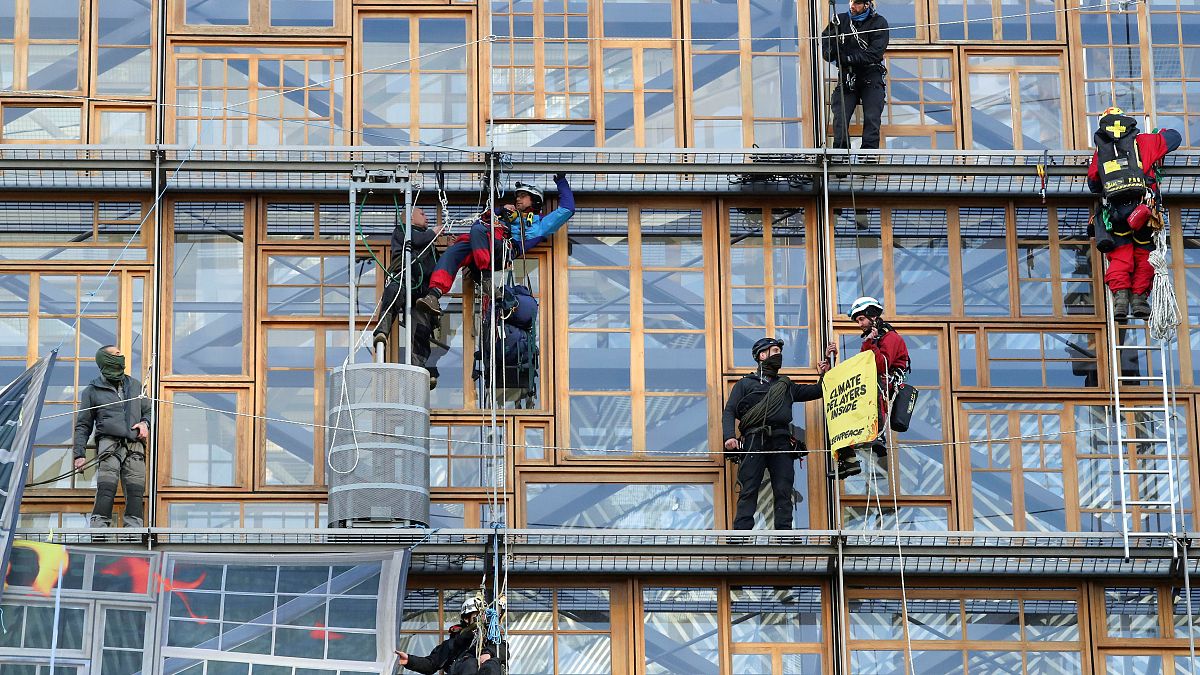Poland, Hungary and the Czech Republic were threatening on Thursday to wreck the bloc's new push for climate neutrality by 2050 as the 27 EU leaders are meeting for a decisive summit in Brussels.
The new EU Commission hailed it as Europe's "man on the moon" moment, but the "green deal" outlined by Brussels this week cannot be taken for granted just yet.
Poland, Hungary and the Czech Republic were threatening on Thursday to wreck the bloc's new push for climate neutrality by 2050 as EU leaders were meeting for a decisive summit in Brussels.
Ursula von der Leyen, the bloc's new chief executive proposed a Green Deal this week to mobilise 100 billion euros worth of investment to help economies move away from fossil fuels.
But the eastern countries want more money to fund a transition to a future of lower emissions, including a role for nuclear power which emits no carbon.
"It is important to have certainty that nobody will stop us in the construction of nuclear power units," Czech Prime Minister Andrej Babis told reporters before leaving for Brussels.
"We have to have electricity for people, for firms, and heating. And that is the priority and I will see. I don't rule out anything."
The Czech Republic generates about half of its electricity from coal and wants to phase most of it out over the next 20 years, replacing part of it with new nuclear power plants.
'No blank cheque'
Hungary's government said on Thursday it also had some conditions before it could back the deal.
"Hungary agrees with the ambitious goals set by the EU but we cannot sign a blank cheque," said Prime Minister Viktor Orban's chief of staff, Gergely Gulyas on Thursday.
"The 2050 climate goals cannot have the consequence of hiking the prices of food or energy."
Budapest can only support the EU climate deal if it ensures that the biggest polluters, countries and companies, bear the brunt of the costs, everyone adheres to the same goals and respects the commitments, and the EU supports poorer members, Gulyas continued.
Hungary relies on nuclear for about a third of its energy needs, with coal making up less than 15% of its energy mix. It wants to abolish coal by 2030 and replace it with a mix of nuclear, gas, renewables and energy imports.
Poland for its part produces some 80% of its power from coal and discussions about introducing nuclear energy have not yet been settled, partly due to high costs.
But a new poll released today suggests Polish public opinion is not aligned with the government's climate policies.
69% want their government to stop blocking the EU agreement on reaching climate neutrality by 2050, according to a new poll from Kantar Polska, commissioned by the global civic movement Avaaz.
As Brussels was preparing to host EU leaders, Greenpeace climate activists climbed the Brussels building where the officials were to meet, unfurling banners reading "Climate Emergency", firing off red flares and blaring fire alarm sirens. Some were detained by police.
READ MORE: Can Europe become 'world's first climate-neutral continent'? Von der Leyen thinks so
Talking to Euronews at the EU summit, Ska Keller, the president of the Greens in the European Parliament, said that she hoped Hungary, Poland and the Czech Republic would not veto a deal.
"We need common action and we cannot let anyone block it", Keller said.
"We have a global climate crisis, it's also happening in these countries", she said. "We can already see it in Europe with hot summers, no one will be able to escape from that."
Nuclear energy, she said, is "not renewable, not sustainable, and not safe". Asked by Euronews' Sandor Zsiros about a planned Hungarian nuclear plant using Russian technology, Keller said that it was "one more way to make Europe dependant on Russian technology or Russian money".
"This is not something we want", she added. "Making ourselves more dependent on Russia is the wrong way forward."
